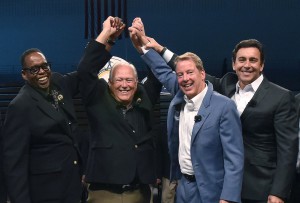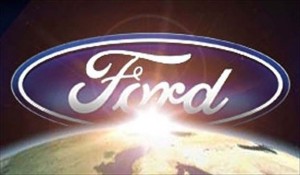In a surprise announcement, the United Auto Workers Union has revealed it reached a tentative agreement with Ford Motor Co. on a new four-year contract.
The two sides had publicly put talks on the back burner – but quietly continued meeting – while union bargainers first focused on negotiations with Fiat Chrysler and then General Motors. With GM workers now likely to have approached their tentative settlement, it was expected the union would shift focus to Ford next week.
“We appreciate the solidarity from our members while we worked to secure the details of this proposed tentative agreement,” UAW President Dennis Williams said Friday afternoon. “We negotiated for a proposal that will solidify job security and create substantial economic gains for our hard-working members and their families.”
As was the case following the settlement with FCA, and again at GM, the UAW does not plan to release specific details of the Ford contract until next week. Senior leaders first plan to meet with representatives from Ford plants across the country at 10 AM on Monday to go over the proposal. They will then ask Ford’s 52.900 UAW members to vote.
(UAW vote on GM contract has been tight. Click Here for more.)
Going into this year’s negotiations, the second-largest of the Detroit makers had said it was seeking a contract that would reflect its unique needs. The UAW, on the other hand, has traditionally focused on hammering out a so-called pattern agreement with one manufacturer and then taking it to the other members of the Detroit Big Three.
There were, however, some notable differences between the Fiat Chrysler and GM contracts, the latter offering workers a more lucrative cash payout reflecting GM’s stronger financial situation.

UAW Pres Dennis Williams, Ford Chairman Bill Ford and CEO Mark Fields shake hands as talks get underway on July 23rd, 2015.
But it’s likely the Ford settlement also includes language critical to the UAW’s goal of eventually eliminating the hated two-tier employment structure put into place in Detroit in 2007 to help a domestic industry that, at the time, was rapidly facing financial collapse.
(FCA sees sharp slide in US Q3 earnings. Click Here for more.)
“This agreement is significant for our members in that it creates a clear path for economic advancement for active members and rewards veteran employees for their sacrifices in recent years,” UAW Vice President Jimmy Settles said as the settlement was announced. “It is one of the richest agreements in the history of UAW-Ford.”
It’s by no means the first time a settlement was reached even while voting was underway elsewhere. In 2011, in fact, FCA reached an agreement with the UAW while workers were casting ballots on the then-new Ford contract.
Since the late 1980s, Ford has worked hard to build what many observers see as the strongest union-management relationship among the Detroit Big Three. So, it is not particularly surprising that the UAW didn’t even have to issue a strike deadline, as it did to push through a settlement with FCA and GM.
If the GM contract is ratified, as now seems likely after an uncertain start of voting, and if the Ford contract also wins approval, it will come as particularly good news for UAW Pres. Williams and his senior bargaining team. This round of quadrennial talks did not start out well. The original offer from Fiat Chrysler was soundly defeated, forcing the two sides to go back and negotiate an alternative agreement.
But winning new money and better benefits, as well as a path out of the two-tier system – without any confrontations — will help the UAW make the case that it serves its members well. And it needs to look good as it moves forward on its long-stalled goal of organizing the non-union “transplant” assembly lines operated across the country by various Asian and European manufacturers.
In the three decades since the first of these facilities, the Honda plant in Marysville, Ohio, opened up, only a handful have accepted the UAW and today, only the Volkswagen facility in Chattanooga, Tennessee has union representation – largely due to the company’s acquiescence. Other foreign-owned makers have actively opposed unionization.
The UAW is expected to push its case at several transplants in the months ahead, notably at the Nissan factory in Canton, Mississippi. It is hoping that the results of this year’s talks in Detroit will help it win over workers in that traditionally non-union state.
(Ford earnings rise 128% for Q3 but still miss Wall Street expectations. Click Here for more.)


When I toured the Flat Rock and River Rouge plants two years ago, I sensed the close relationship between the union employees and Ford plant management. Most importantly, I witnessed first hand the pride and expertise the Mustang and F-150 workers had for the vehicles they were assembling. As a Ford automobile and truck owner, a too feel a sense of pride in my association with the builders of these outstanding vehicles. I also have tremendous respect for the sales, parts and service people at the local dealerships who show the same dedication. They ultimately complete the chain that links the Ford Motor Company with the car buyers and owners.